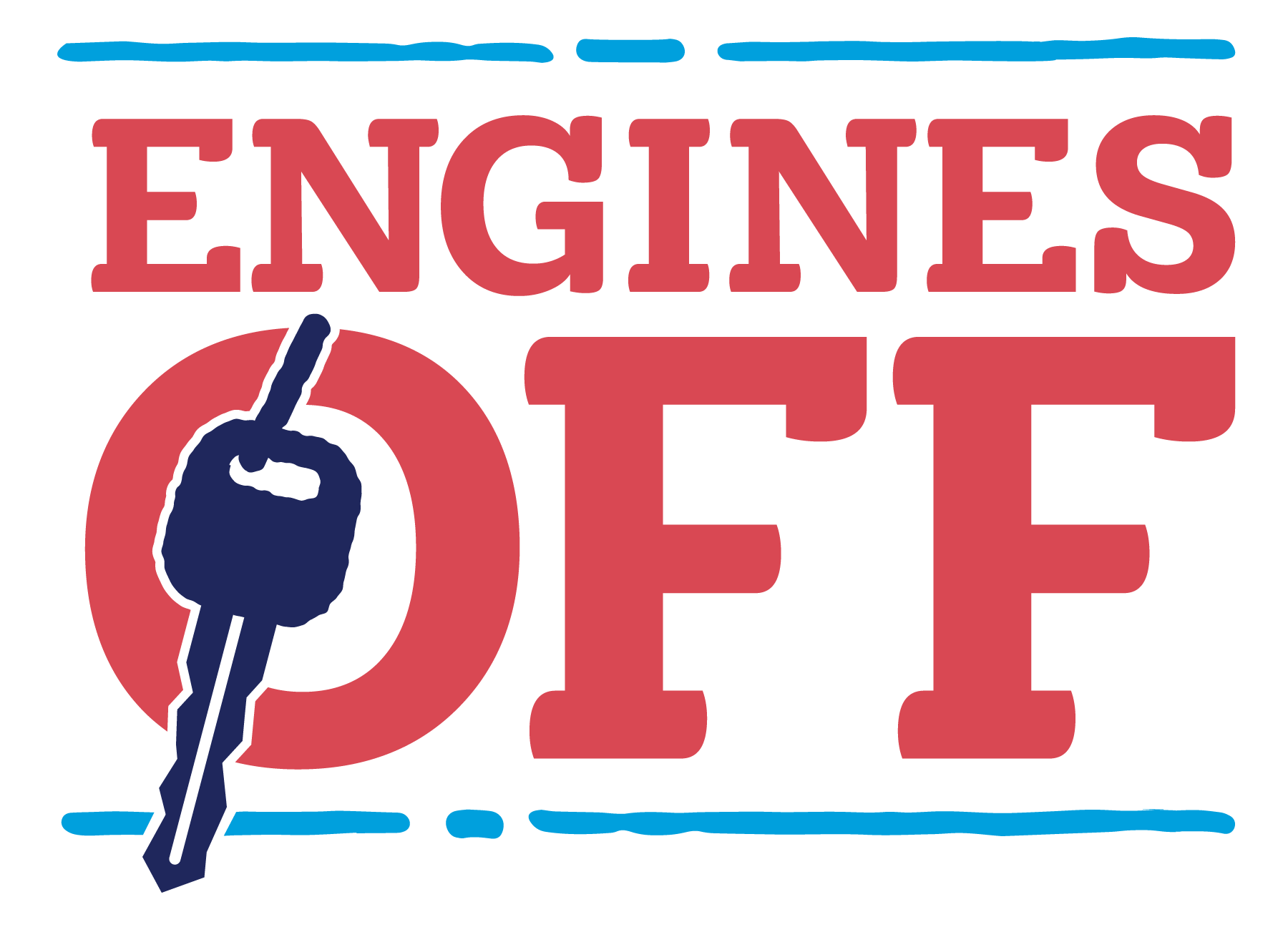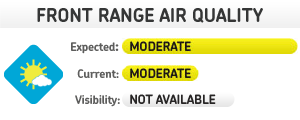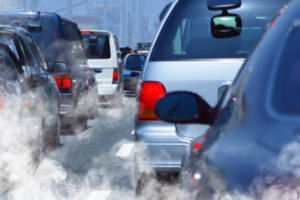
Engines Off for Local Governments
Idling is a threat to public health and the environment, and when public fleets idle, it’s a waste of taxpayer money. This page is designed to provide local governments the resources they need to adopt best practices to manage idling. These practices include vehicle idle reduction strategies and policies to mitigate idling by commercial and passenger vehicles, as well as policies and technologies to reduce idling of public fleets.
Idling is leaving a car’s internal combustion engine running while the vehicle is parked and the driver is in the car. This seemingly small behavior has long been a focus of air quality and environmental advocates in Colorado due to the cumulative effect of millions of vehicles idling for 5, 10, or 40 minutes, every hour, every day.
Public Health
Each year, idling vehicles release thousands of tons of particulate matter, carbon monoxide, NOx, VOCs and other pollutants – some of which are carcinogenic, like benzene. Some of these pollutants contribute to Colorado’s dangerous ground-level ozone pollution. In fact, in just Colorado’s ozone nonattainment region, idling vehicles emit 1,388,259 lbs of NOx; 83,122 lbs of VOCs and 663,144 lbs of carbon monoxide. Overall, vehicle idling increases the severity of asthma, respiratory diseases, cardiovascular disease and other health problems. Children, elderly and people with underlying health conditions are especially vulnerable.
Climate Change
Vehicle idling in the US wastes 6 billion gallons of fuel each year, emitting 58 million tons of carbon dioxide. In the Colorado ozone nonattainment region, when the greenhouse gas emissions from fuel extraction, refining, and use are all considered, the fuel used by idling vehicles causes a whopping 1.5 billion lbs of greenhouse gas emissions. Half of these emissions are from passenger vehicles. Half are from commercial medium- and heavy-duty vehicles. Because of the inequitable distribution of freight corridors and industrial facilities in Colorado, the health impact of commercial vehicle pollution disproportionately impacts low income and minority communities, contributing to environmental injustice.
Cost Savings
Each year, U.S. vehicles consume more than 6 billion gallons of diesel fuel and gasoline combined by idling; that’s worth $20 billion. Contrary to popular belief, idling for 10 seconds wastes more gas – and causes more wear and tear on engines – than turning an engine off and on. Reducing idling can save a lot of money for commercial vehicle fleets. Idling uses about 1 gallon of fuel in an hour. Many trucks idle for 4-8 hours per day, costing $5,000-$12,000 per year in wasted fuel per truck. In addition, the Maintenance Council of the American Trucking Associations estimates that idling can add as much as $2,000 per year in maintenance costs.
Idling is illegal for many vehicles in Colorado.
The current state idling law prohibits commercial diesel vehicles with a gross vehicle weight limit of 14,000 lbs or more from idling for more than 5 minutes in any one-hour period, with several exemptions. The law formerly prohibited local municipalities from creating stronger ordinances – but as of 2024, local governments are now able to pass idling laws that are more stringent than the state law. Local governments have always been able to regulate passenger vehicle idling, and many do.
In addition to the state anti-idling law and local laws and ordinances, Colorado Revised Statute 42-4-1206, more commonly known as the “puffer” law, allows law enforcement officers across the state to immediately ticket individuals who have left a vehicle running unattended for any period of time.
Municipal laws & ordinances in Colorado
Aspen
Limits vehicle idling to five minutes in any one-hour period and the vehicle must be attended to at all times
Basalt
Limits vehicle idling to no more than two consecutive minutes
Denver
Limits vehicle idling to five minutes in any one-hour period and the vehicle must be attended to at all times.
Johnstown
Vehicles weighing more than ten thousand (10,000) pounds are forbidden from idling for more than 15 minutes in any one-hour period.
Greenwood Village
Vehicles weighing more than twelve thousand (12,000) pounds are restricted from idling for a consecutive period longer than five minutes.
Mountain Village
Limits vehicle idling to five minutes within any one-hour period and the vehicle must also be attended to by a licensed operator.
Telluride
Limits vehicle idling to 30 seconds and vehicle must be attended by a driver. Idling time permitted is extended to three minutes for starting an engine in cold weather.
Winter Park
Limits vehicle idling to no more than 15 consecutive minutes.
The negative impacts of vehicle idling will lessen as the population transitions to electric vehicles, but while the majority of new vehicles sales will hopefully be electric in 10-15 years, the majority of cars on the road won’t be; and the most polluting (older) cars will remain longest in low-income communities. Emissions from internal combustion engines are bad for public health, the climate, and contributes to Colorado’s ground level ozone pollution. Although reducing vehicle idling won’t solve these problems by itself, it’s a common-sense, win-win approach to air quality that should be part of the solution. Ues our resources to learn how your community can participate.
Want to learn more or reduce idling in your community? Check out our related documents.


